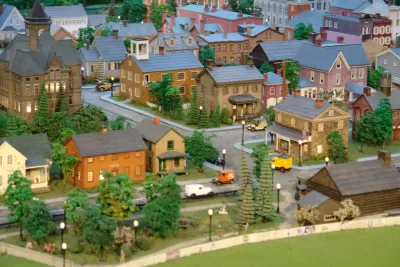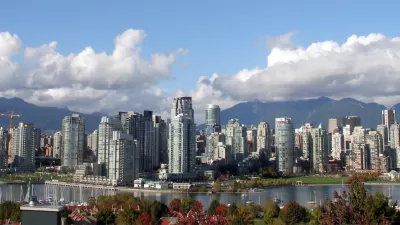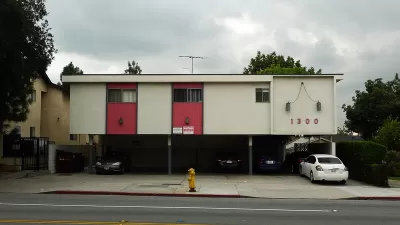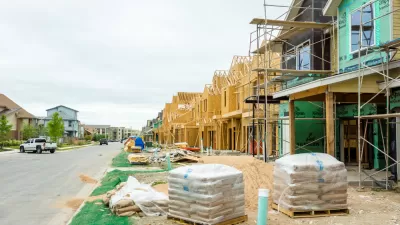Critics often assume that newer buildings are inferior to old. The same was said when the old buildings were new.

Daniel Hertz writes of the "immaculate conception theory" of neighborhood development, which reflects an assumption that "older housing was built the right way: ethically, modestly, with an eye to community rather than profit."
"These older values, in turn, highlight the faults of modern buildings: gaudy and wasteful, disruptive to existing communities, and motivated only by money."
"The problem with the immaculate conception theory is that, like parents swearing that they would never have behaved the way their kids do, it is conveniently forgetful about what actually happened in the past. Taking, just as an example, the early 20th century bungalow, a closer look reveals that it was defined not by mass affordability, efficiency, and respect for traditional communities, but something very nearly the opposite."
FULL STORY: The Immaculate Conception Theory of your Neighborhood’s Origins

Maui's Vacation Rental Debate Turns Ugly
Verbal attacks, misinformation campaigns and fistfights plague a high-stakes debate to convert thousands of vacation rentals into long-term housing.

Planetizen Federal Action Tracker
A weekly monitor of how Trump’s orders and actions are impacting planners and planning in America.

In Urban Planning, AI Prompting Could be the New Design Thinking
Creativity has long been key to great urban design. What if we see AI as our new creative partner?

King County Supportive Housing Program Offers Hope for Unhoused Residents
The county is taking a ‘Housing First’ approach that prioritizes getting people into housing, then offering wraparound supportive services.

Researchers Use AI to Get Clearer Picture of US Housing
Analysts are using artificial intelligence to supercharge their research by allowing them to comb through data faster. Though these AI tools can be error prone, they save time and housing researchers are optimistic about the future.

Making Shared Micromobility More Inclusive
Cities and shared mobility system operators can do more to include people with disabilities in planning and operations, per a new report.
Urban Design for Planners 1: Software Tools
This six-course series explores essential urban design concepts using open source software and equips planners with the tools they need to participate fully in the urban design process.
Planning for Universal Design
Learn the tools for implementing Universal Design in planning regulations.
planning NEXT
Appalachian Highlands Housing Partners
Mpact (founded as Rail~Volution)
City of Camden Redevelopment Agency
City of Astoria
City of Portland
City of Laramie





























